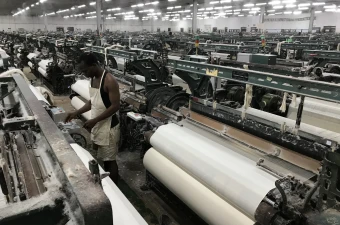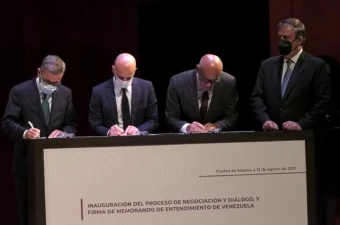 Independent trade unions crucial to get out of crisis in Venezuela
Independent trade unions crucial to get out of crisis in VenezuelaDialogue between government and opposition in Mexico must lead to solutions
The deep economic crisis in Venezuela, neighbouring country to the Kingdom of the Netherlands, has caused around 4.6 million Venezuelans to flee the country. In search of a future they go to neighbouring countries such as Colombia and Peru. It is the third largest refugee crisis in the world.
The economy has completely run aground due to mismanagement, hyperinflation and an authoritarian regime that does not tolerate any opposition and even sidelines democracy. The COVID-19 pandemic has deepened the crisis.
In order to find a solution, a political dialogue has been initiated in Mexico between the Venezuelan government and the opposition. These talks are being facilitated by Norway with guidance from the Netherlands and Russia.
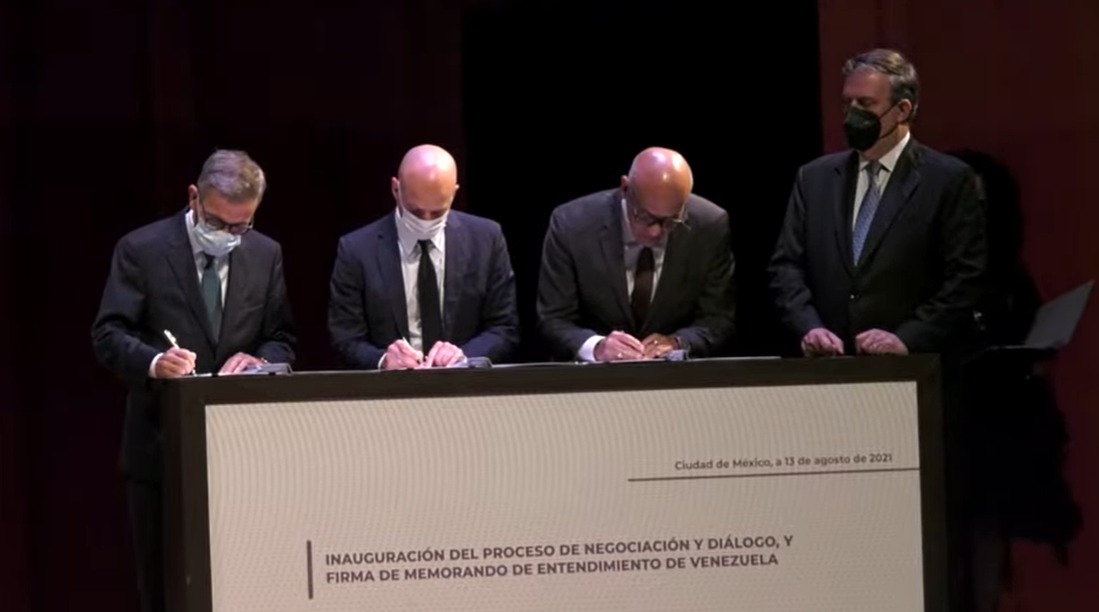
At the start of the dialogue in Mexico government and opposition sign a memorandum of understanding
This is not the first attempt; there have been previous attempts in 2016, 2017, 2018 and 2019, all of which came to nothing. However, the crisis is so desperate that both government and opposition are willing to make another attempt.
Whether or not political results are achieved during this dialogue in Mexico has a direct impact on millions of Venezuelan workers.
The voice of workers
According to the trade union ASI Venezuela - partner of CNV Internationaal - the proposals of ordinary workers must be listened to. After all, it is they who are most affected by the crisis.
The dialogue between the government of Nicolás Maduro and the opposition, acting together in the Plataforma Unitaria led by Juan Guaidó, started at the lowest point of the severest crisis that the country has been going through in recent years.
It is vital "that despite the polarisation between the government and the political opposition,
the parties enter into dialogue
so that a roadmap for getting out of the crisis
can be agreed upon.
Then there can only be one winner: Venezuela,"
Leída Marcela León, president of the trade union ASI (Alianza Sindical Independiente)
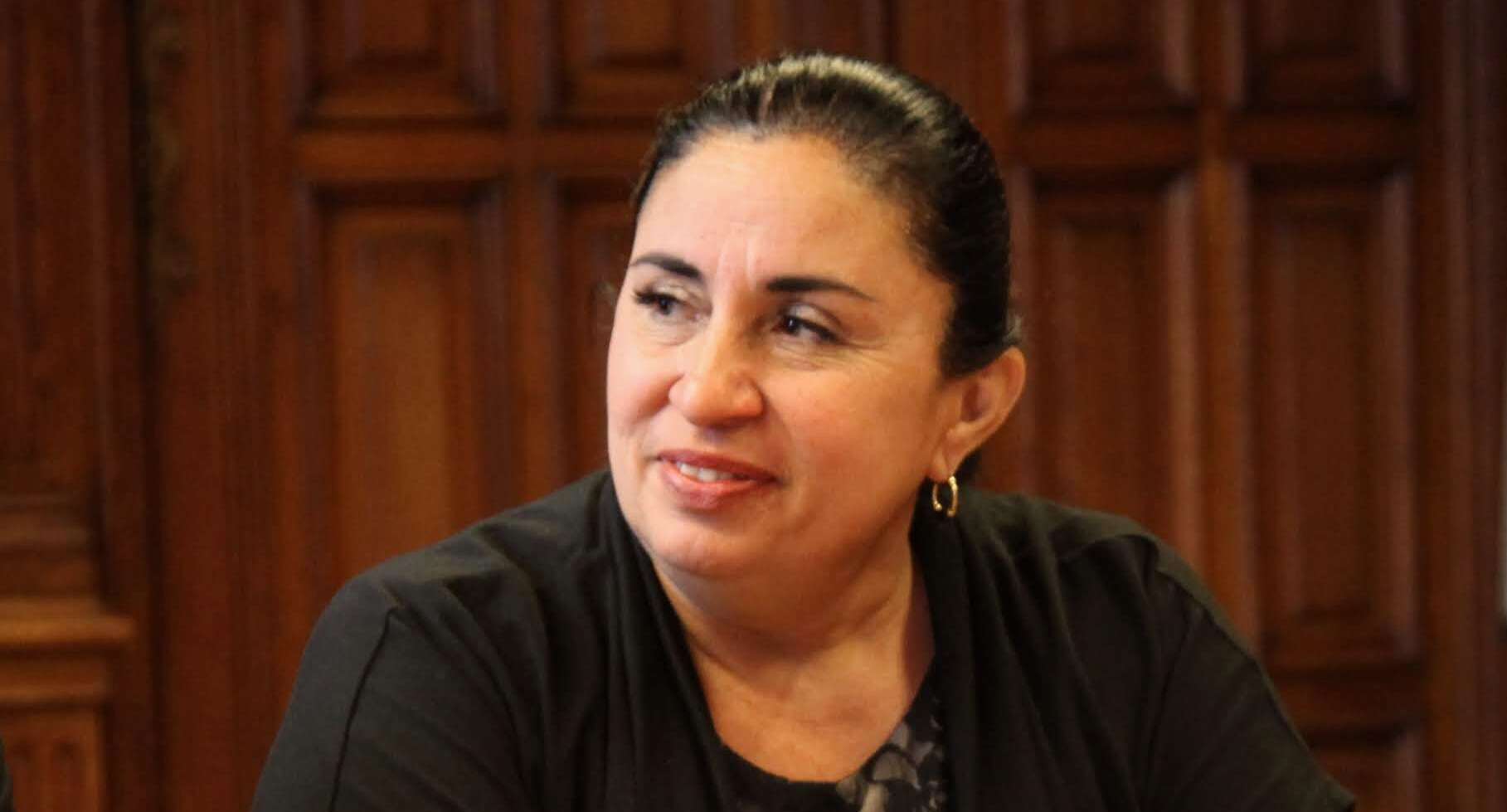
That is why it is vital "that despite the polarisation between the government and the political opposition, the parties enter into dialogue so that a roadmap for getting out of the crisis can be agreed upon.
Then there can only be one winner: Venezuela," says Leída Marcela León, president of the trade union ASI (Alianza Sindical Independiente).
No democracy without trade unions
"The political agreement needed to get out of the crisis that is the objective of this dialogue is not possible without the proposals of the workers' organisations", stresses the independent trade union ASI, partner of CNV Internationaal. However, the trade union was not invited by the organisers of the dialogue table, neither in Venezuela nor in Mexico.
"The political actors must understand that without trade unions there is no democracy," said trade union leader León.
"It is of great importance that independent and democratic trade unions such as ASI Venezuela can make the voice of ordinary workers heard in the political negotiations in order to find a way out of the crisis" agrees Maurice van Beers, CNV international's regional coordinator for Latin America. "In the end, of course, there must be guarantees for fair and democratic elections."
In Venezuela, despite the regime's left-wing leanings, there has been no consultation between social partners for years. Wages and prices are imposed by the government. Many trade unions are aligned with the government and independent trade unions are obstructed by the government and their leaders are even arrested.
“"It is of great importance that independent and democratic trade unions such as ASI Venezuela can make the voice of workers to be heard in the political negotiations in order to find a way out of the crisis"
Maurice van Beers, CNV international's regional coordinator for Latin America.
International recommandations
There seems to be some improvement here in recent months now that the government is trying to follow the recommendations of the UN's International Labour Organisation ILO for Venezuela and has entered into a dialogue with employers and employees.
This involves not only the 'official' trade unions that are connected to the government line, but also critical and independent trade unions such as ASI. Consultation between the social partners is important to reach agreements on wages, health and safety at work and trade union freedom.
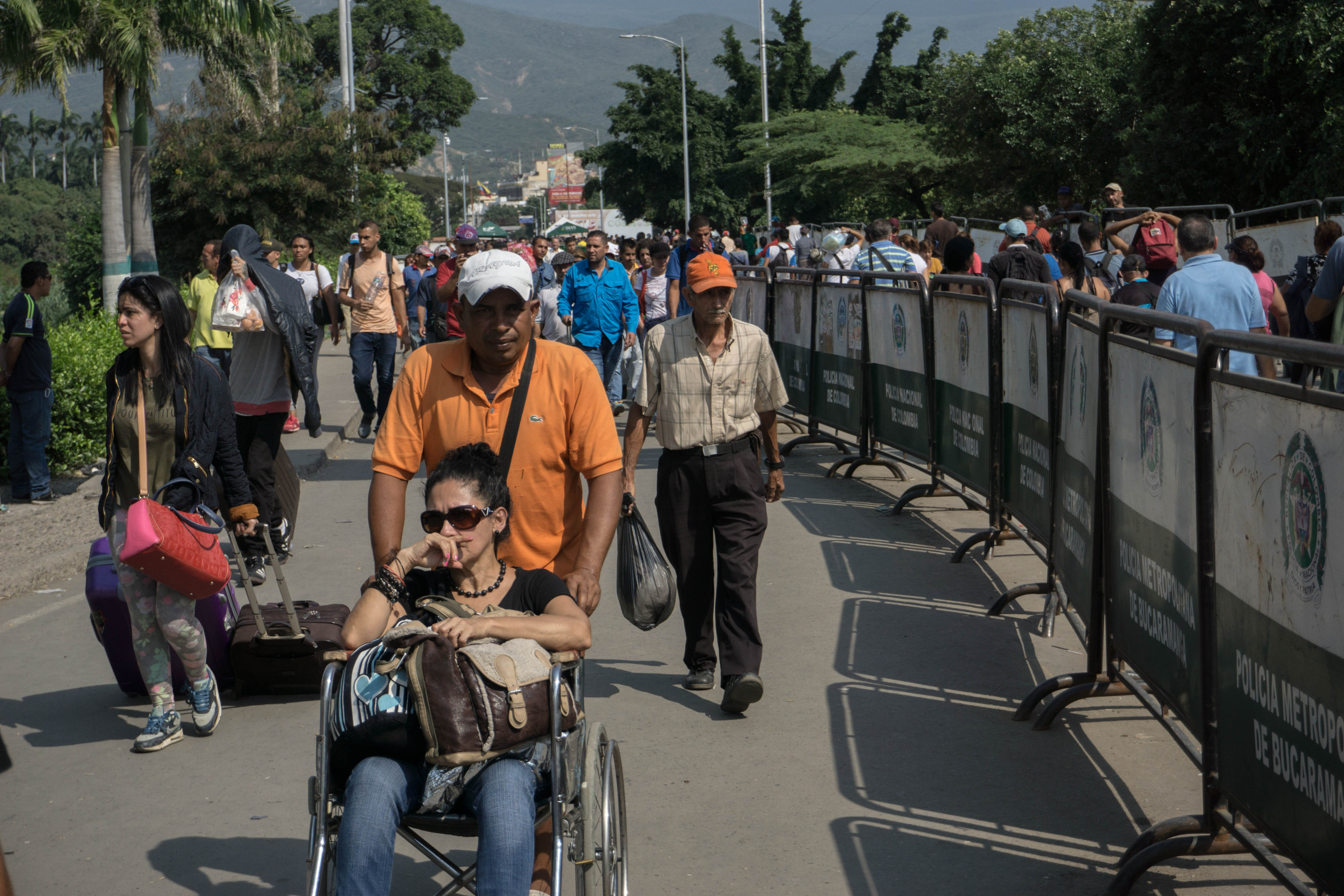
Hyperinflation
The social and economic context of the dialogue in Mexico could not have been more dramatic. The minimum wage is so low due to hyperinflation that nothing can be bought for it. It covers only 1.02% of the needs for food, for example. That means malnutrition, hunger, disease, death, lack of education for workers and their families. It causes the greatest forced migration in the history of Latin America
According to Marcela Leon, the chairwoman of the ASI trade union, "the 44 months of persistent hyperinflation have destroyed the purchasing power of wages and the value of existing collective agreements".
Trade unionists who speak out about this run the risk of being arrested. Already 159 workers and trade union leaders have been arrested and are in detention. Freedom of organisation and fundamental labour rights are being trampled on in Venezuela.

Verpleegkundige gearresteerd
The story of Ada Macuare
Nurse and trade unionist Ada Macuare was arrested in July while working in the emergency room because she had taken part in a protest by healthcare staff. She was detained in a police cell.
In Venezuela, health care workers have to work without proper protective equipment, there is no vaccination programme and salaries are not paid or only partially.
Meanwhile, Macuare has been released temporarily, but the situation has not changed.
Collapsed health system
Moreover, the talks in Mexico are about a country where the COVID-19 pandemic is raging at full speed and has to cope with a collapsed health system and no means of protection for those who have to fight the virus. Vaccination rates among health workers are very low.
This translates into thousands of infections among health workers in the first half of the year:
- 722 deaths were recorded in the health sector out of a total of 3,799 according to official figures.
- 19.4% of those killed by the coronavirus were health workers.
"That is why the voice of the workers must be heard during the talks in Mexico, , says Leída Marcela León. "We can even mediate between these polarised parties. We can make them understand our pain and suffering".
ASI's proposals for the political dialogues in Mexico
Since February, the ASI trade union has been participating in the bipartite and tripartite social dialogue convened by the Ministry of Social Affairs and Labour, as part of the follow-up to the ILO recommendations mentioned above. But still there is no consensus. No agreements have been translated into concrete results.
Trade union ASI Venezuela has made proposals for the medium term, but implementation depends on political dialogue. This should lead to productivity, confidence, employment and legal security.
Trade union ASI proposes a scenario with 5 measures to restore workers' rights and decent work in Venezuela and to get the economy back on track:
- Respect the rights of workers and trade union leaders.
- Repeal the NATALMES trade union rules. These regulations impede the free election process of trade unions and violate trade union freedom.
- An emergency law on labour that includes an emergency wage, as a "lifeline" to address the economic crisis.
- An income of fifty (50) euros in bolivars for the entire working population, pensioners and retirees, both in the public and private sectors, and the self-employed.
- A transitional programme for a period of 12 months, which may be extended by a further six months.
In parallel, a programme of reforms in the areas of taxation, legislation, employment and productivity should be drawn up through a tripartite social dialogue involving trade unions, employers' organisations and the government. This will ensure legal certainty for investors and a return on investment. Moreover, this will revitalise the country's production and manufacturing capacity. Decent work programmes should ensure the restoration of wages and thus purchasing power within the timeframe of the Emergency Law on Labour.
Trade union ASI calls on the participants in the political dialogue:
- To seek the necessary consensus for the release of the Venezuelan state's frozen funds abroad. This is necessary to pay for this proposal for a minimum subsistence income.
- To ensure all workers to be vaccinated urgently so that they can gradually return to work.
- Creation and installation of the National Tripartite Commission and/or Council on Wages.
More articles regarding Venezuela:
 Independent trade unions crucial to get out of crisis in Venezuela
Independent trade unions crucial to get out of crisis in VenezuelaPublication date 17 08 2021


